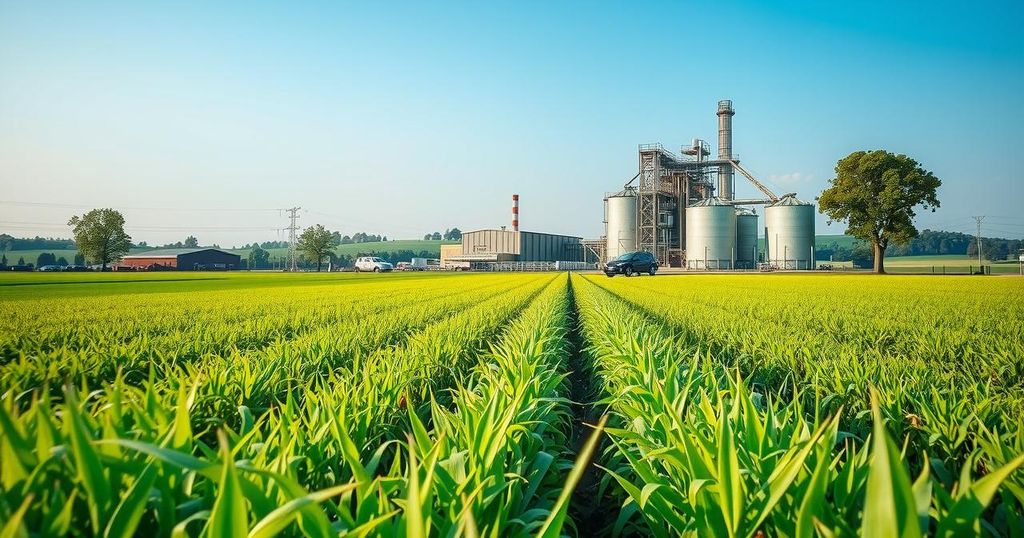Bolivia inaugurated an NPK fertilizer plant to produce 60,000 tons annually, generating 23.9 million bolivianos. The plant aims to fulfill domestic fertilizer needs and boost exports, significantly enhancing local agriculture. This initiative is a key component of the country’s industrialization strategy under President Luis Arce’s administration.
The NPK fertilizer plant in Bolivia, inaugurated by President Luis Arce in October 2023, aims to produce 60,000 tons annually, generating significant income for the country. General Manager Jorge Martínez reported a production of 4,555 tons, yielding 23.9 million bolivianos (over seven million dollars). This initiative is part of Bolivia’s strategy to industrialize and reduce dependence on imports, as the plant is strategically located in the Santiváñez Industrial Park of Santa Cruz.
The facility intends to meet domestic fertilizer demands fully while facilitating exports to international markets. By relying on local raw materials from Yacimientos Petrolíferos Fiscales Bolivianos (YPFB) and Yacimientos de Litio Bolivianos (YLB), the plant will alleviate Bolivia’s previous import practices. With projections indicating a potential 60% increase in agricultural yields, the project is crucial to enhancing food production across the nation.
Martínez emphasized, “It will have export capacity, and the whole world wants to buy fertilizers, and we, as a country, are privileged… we have everything, but we needed to organize ourselves in an industrialization process.” This facility is the first of nearly 170 planned under the government’s industrialization policy aimed at replacing imports.
The project, undertaken by Sur Energy SRL, was executed within a year at a cost of approximately eight million dollars. With 35% of the production allocated for the domestic market and the remainder set for export, the plant’s launch signifies a pivotal move towards self-sufficiency in fertilizer production and economic growth for Bolivia.
In summary, Bolivia’s new NPK fertilizer plant represents a significant advancement in the country’s industrial and agricultural sectors. With a focus on meeting local demands and expanding export capabilities, the initiative aims to diminish reliance on imported fertilizers and enhance agricultural productivity. These efforts reflect the government’s ongoing commitment to industrialization and economic development.
Original Source: www.plenglish.com




